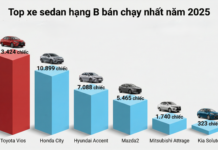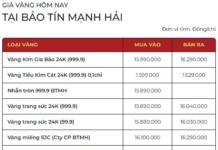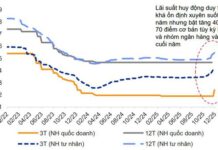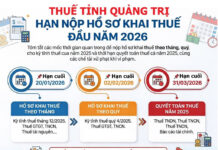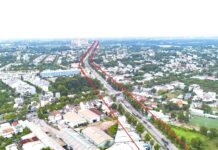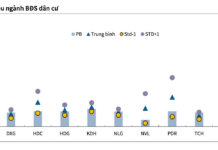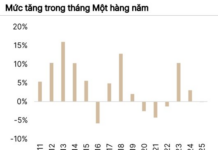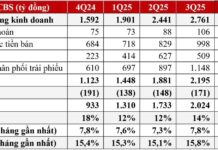Land Market Warming Up as Investors Shift from Condos
Vu The Anh, a resident of Hanoi’s Ba Dinh district, revealed that he had to abandon the stagnant land market two years ago to invest in apartment complexes. However, after observing a gradual recovery and increasing interest in the land market, he has decided to return to his previous domain.
Anh believes that the constant price increase in apartment complexes, due to limited supply, has presented an opportune time for him to shift his focus back to land, which offers greater potential for profitability.
Nguyen Thi Nga, an experienced real estate investor from Hanoi, has also begun exploring land plots in neighboring provinces. She notes that while the market is not fully revived, there are ample opportunities to acquire desirable parcels of land at discounted prices.
“An apartment in the outskirts of Hanoi can easily cost around 2.5 – 2.9 billion VND. For the same amount, one could invest in land plots in well-planned urban areas or near the city limits,” said Nga.
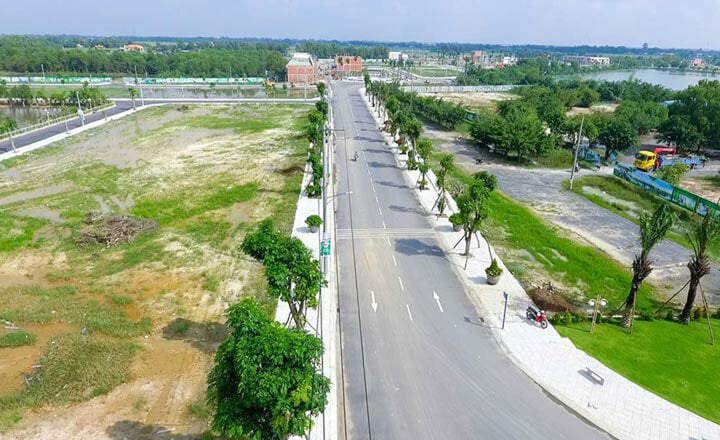
Confirming the resurgence in the land market, Dinh Van Hai, Director of Hoang Hai Real Estate (Soc Son, Hanoi), stated that in 2023, his office had shown land to 100 prospective buyers in Soc Son but failed to close any deals.
However, since the Lunar New Year, there has been a spike in interest, resulting in 10 successful transactions worth 6 billion VND or less. The most popular and liquid properties are parcels of land between 1-2 billion VND with clear property rights.
“For buyers seeking a second or third home, land plots between 1,000-2,000 square meters with 400 square meters of usable land are selling fast, priced around 5-7 million VND per square meter. Investors seeking to protect their capital from depreciation prefer smaller plots of 100 square meters priced at 1 billion VND. We have seen a significant increase in sales in the 1-2 billion VND range,” Hai noted.
PropertyGuru Vietnam’s Q1 2024 report echoes the positive trend in the land market.
According to the report, interest in land plots, which had dropped to 44% of the demand during the 2021 frenzy, has rebounded to 48% in Q1 2024.
In the north, demand for land in several districts outside Hanoi, such as Dong Anh, Long Bien, and Hoai Duc, has increased by 1.7-2 times compared to Q1 2023.
In the south, interest in land plots has stabilized. Cities like District 9, District 12, Thu Duc, and Hoc Mon have seen a 13-25% increase in demand.
In terms of land prices, the southern region has experienced a 3% decrease compared to the same period last year, while the northern region has witnessed a significant 25% increase and the central region has seen a 4% increase.
Dinh Minh Tuan, Regional Manager of PropertyGuru Vietnam, remarked: “The allure of land as an investment has returned, with plots under 2 billion being particularly attractive. Since the end of 2023, we have noticed the emergence of ‘shark’ investors acquiring land in bulk. As demand intensifies, prices are expected to rise.”
Tuan attributes the land market recovery to three key factors:
Firstly, the cyclical nature of the land market experiences a seasonal increase in demand for land plots after the Lunar New Year in March.
Secondly, price adjustments in certain regions have made land acquisition more attractive. Provinces in the south, such as Ba Ria Vung Tau, Long An, Lam Dong, and Dong Nai, have witnessed a 12-19% decrease in land prices compared to early 2023.
Thirdly, investors are anticipating changes brought by three new laws that will come into effect in 2025.
“The tightened regulations on land subdivision are a major concern, and the supply of subdivided land is predicted to decline sharply after 2025. However, the demand for land is unlikely to diminish due to the cultural preference for owning land among Vietnamese. When supply is low and demand is high, land prices will go up. Many investors are eager to take advantage of this trend and are actively searching for land before the new laws take effect,” Tuan explained.
Tuan further emphasized that this is an opportune time to acquire land for investment purposes. However, he advises investors to focus on parcels priced below 2 billion VND, with clear legal status and property titles. He predicts that this category will experience increased transaction activity in the near future.
“When the amended laws are implemented on January 1, 2025, the supply of land plots will decrease as developers will face restrictions on subdivision and land sales. At this point, land prices could enter a new cycle of growth. Historically, land prices have only increased after previous legal revisions.”
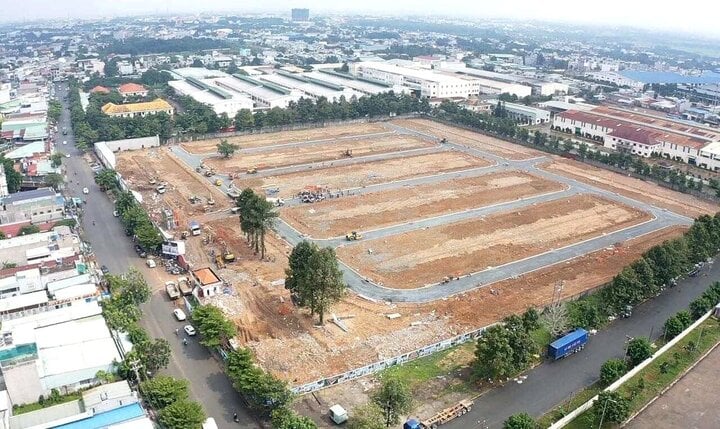
Experts predict a potential resurgence of the land market in 2025-2026. (Photo: baodautu.vn)
Tran Khanh Quang, General Director of Viet An Hoa Real Estate Investment Company, agrees that as legal uncertainties are being resolved, the real estate market in general and the land market in particular are showing positive signs of recovery in terms of transaction volume.
In the long run, land is still highly attractive to investors, which will drive price fluctuations in the future. However, Quang cautions that land in provincial areas tends to lag behind urban centers and may only start seeing significant growth in 2025.
Nguyen Van Dinh, Chairman of the Vietnam Real Estate Brokers Association, suggested that investors are starting to focus on land “hunting” in suburban areas of major cities, where infrastructure is well-developed and urbanization is accelerating at relatively low prices, offering ample potential for future growth.
Peri-urban land plots are expected to be the most sought-after type of property in 2024, with the price segment below 2 billion VND per plot attracting the most interest. The appeal of land, especially as a long-term investment, will be difficult to diminish. This segment has always been favored by investors due to its inherent advantages, such as the cultural preference for land ownership, the need for safe asset accumulation, and the potential for substantial profit from land appreciation.
“Based on historical trend analysis, the land market frenzy is likely to return in the 2025-2026 period. The current period, up to the first half of 2024, can be seen as the beginning of a new cycle of recovery and growth in the real estate market,” Dinh emphasized.


